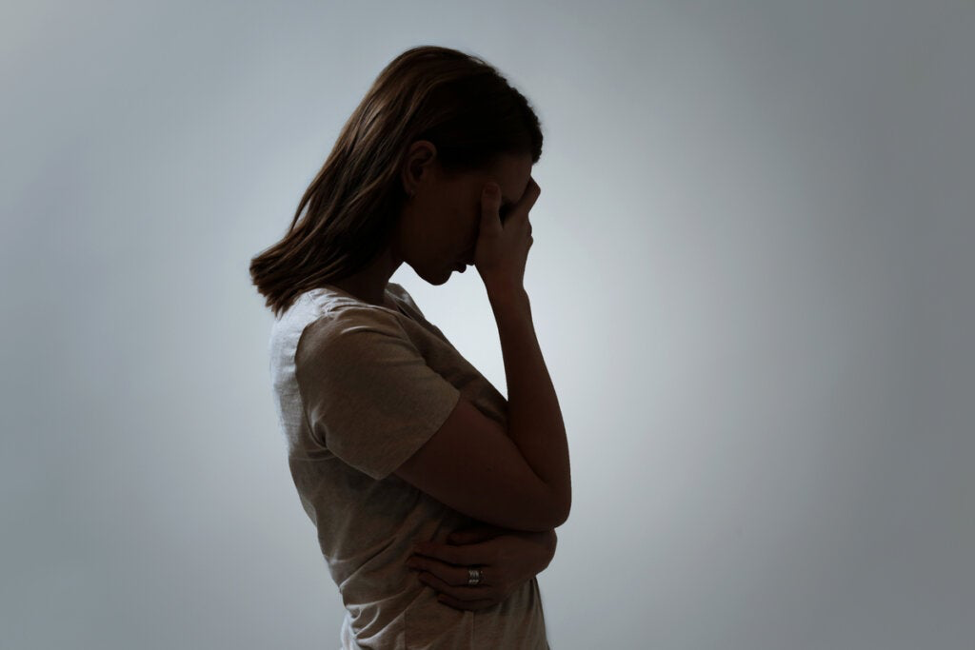You’ve probably experienced moral distress at some point in your life. It happens when you do anything that’s against your values. It’s the eternal conundrum between duty and desire, between what the heart dictates vs. what the circumstances require. Life, after all, runs through these ambivalent channels in which things aren’t always as one would like them to be.
There are thousands of examples of these circumstances. For one, health professionals, doctors, nurses, and health workers experience them when they work in poor conditions and can’t tend to patients as they’d like to. Most people experience it when, for example, they have no choice but to place their grandparent or parent with Alzheimer’s in a nursing home. All because they don’t have the resources they need at home.
The same thing can happen to you when you’re forced to leave your babies or younger children in daycare because you have to work and can’t spend all of your time with them. People experience this pain in which conscience, emotions, values, and that uncomfortable moral contradiction come together on a daily basis.
“The moral dilemma is to make peace with the unacceptable.”
-May Sarton-
Moral distress, what is it and why do humans experience it?
The term moral distress first appeared in 1984, philosopher Andrew Jameton apparently coined it. This is because he wanted to describe an increasingly common phenomenon in society. As he explained, humanity has reached a point where institutional barriers are challenging the fundamental moral principles and ethical responsibilities.
People experience this reality due to the structure of the labor market. They’re rarely allowed to reconcile family and professional life and it causes moral distress. Who wouldn’t love to spend more time with their lover and have more hours to spend with their children! However, schedules and scarce policies are a considerable obstacle to do so.
Obviously, you wouldn’t be wrong to point out that current circumstances are making this dimension more common than ever. Healthcare workers experience moral distress on a daily basis in the face of overcrowding. Companies and workers must also frequently face morally distressing situations.
This is, moreover, a type of psychological reality that’s difficult for many people to manage. For example, when an employer has to lay off employees because their business is no longer viable in the current circumstances. It throws them into a dimension of personal and ethical pain that’s quite devastating.
The pain of being unable to act with integrity
Studies, such as those conducted at the University of Valencia, show how moral distress is impacting the field of nursing. Humanity is facing one of the greatest health tragedies it’s ever experienced and affects multiple groups in modern societies. In fact, the healthcare field is the most affected one.
This research work highlights the emotional impact derived from those situations in which people can’t say goodbye to their relatives, for example. This is because losses without goodbyes are a great source of stress. The pain experienced by not being able to act with the integrity they’d wish is taking a heavy toll on health professionals.
People aren’t prepared for moral distress
This kind of distress basically arises when you detect something that’s wrong and are unable to act on that dimension as you’d like. In fact, blocking this behavior, of repressing your ethical response to a specific event, goes against your own nature.
The brain naturally detects threats or risky situations and acts upon them. You can fight (respond) or flight (flee to survive). However, when you identify something that’s not right and are urged to “not act”, then stress and emotional distress activate in your body.
Not being able to visit the elderly in nursing homes in this context of health alarm, for example, hurts and contradicts. It’s clear that not doing so safeguards their well-being, but the mind can’t help but feel moral distress. This is because the lack of emotional and social contact with the elders is devastating for them, no doubt.

The answer lies in cultivating moral resilience.
Cynda Hylton Ruston is an academic specializing in clinical ethics, in addition to being a professor of nursing and pediatrics at John Hopkins University. She coined a memorable term worth keeping in the forefront of your mind. The purpose of moral resilience is to heal and manage the pain caused by the ethical and moral challenges you experience on a daily basis. Thus, take into account the following in order to work on this dimension:
- You can’t control the circumstances that surround you, but you can control your emotions.
- You can’t hide the emotions you may feel in situations of moral distress and you can’t conceal them or leave them aside. Thus, you must accept, release, manage and share them with others in order to normalize them and try to stay in control.
- Try not to punish or judge yourself for undertaking actions that may not align with your values. Life is uncertain and you can’t have absolute control over what surrounds you. There are times in which the best alternative isn’t necessarily the fairest. However, it’s the necessary one given the circumstances.
- The simple fact of experiencing pain through it is a reminder that your values and principles are still intact.
- It’s also essential to share the pain you’ve experienced with others. You may do so by creating support groups. This is because talking with friends and family can help you deal with moral distress.
In conclusion
Last but not least, it’s necessary to give meaning to any challenges you face. Many of the things you do are meaningful even in a world full of chaos. You may struggle to find it today, but you’ll undoubtedly understand it better tomorrow.
The post Moral Distress – Being Clueless About What to Do appeared first on Exploring your mind.



















Comments